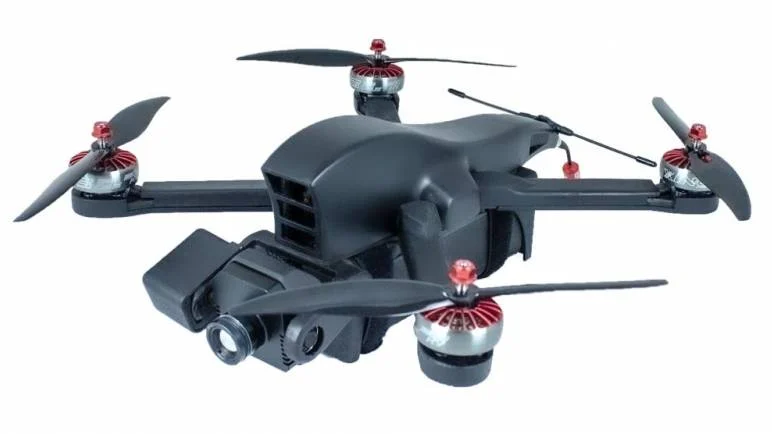Russia’s Astron Opto-Mechanical Design Bureau has developed a new long-range reconnaissance system, Astron CEO Vladimir Popov told TASS on March 21.
The system, dubbed Blokpost-4T, integrates one to four ground-based thermal imaging stations and at least one 400T quadcopter drone. The 400T is Russia’s first drone with a domestic thermal imager. It has been already used in the ongoing special military operation in Ukraine.
“Currently, the Russian army operates various optoelectronic equipment for gathering terrain data in any weather conditions, including thermal imagers. However, a dilemma always exists for both optical and thermal imaging systems: either you have a large field of view or you need to provide a highly detailed image. We believed that the integration of the ‘flying thermal imager’ into the ground-based surveillance system would help solve this dilemma unconventionally and quite elegantly,” Popov said.
Astron is a subsidiary of the Shvabe Group, which is a part of the Russian state-owned defense and tech conglomerate Rostec.
According to Popov, the ground-based thermal imaging stations of the Blokpost-4T can detect individuals at a distance of 800 meters and motor vehicles at a distance of two kilometers.
“The system’s inbuilt video analytics singles out spotted objects on the screen to assist an operator who sends a drone to the designated area. Spotted targets are identified by an unmanned thermal imaging system at a distance of up to six km,” the chief executive explained.
Popov said that the Blokpost-4T has been already tested and went on to reveal that the first prototypes of the system are currently being manufactured by Astron.
The Blokpost-4T concept offers much flexibility and eliminates the need for time-consuming coordination between different ground and aerial reconnaissance units. It is unclear yet if Russia is planning to test the new system in the special military operation zone in Ukraine.
MORE ON THIS TOPIC:






